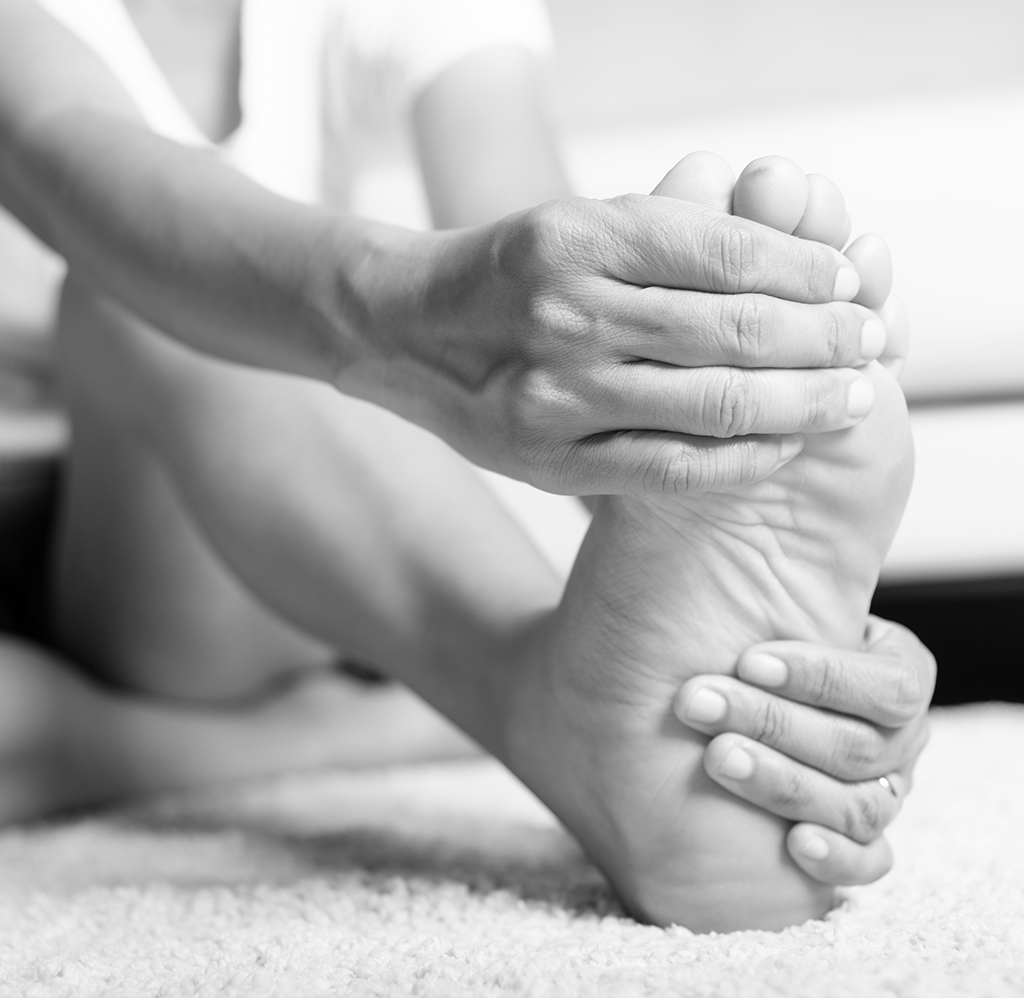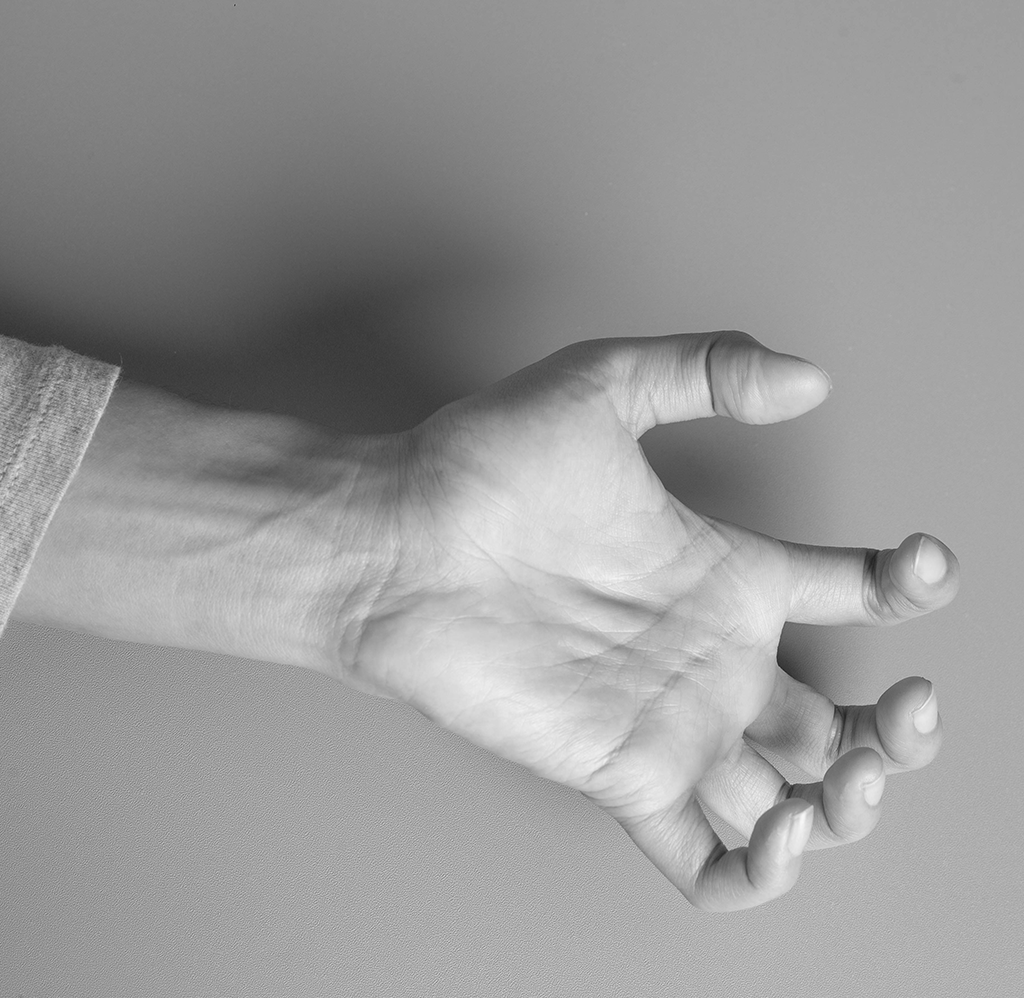DIABETIC NEUROPATHY
What is Diabetic Neuropathy?
Diabetic neuropathy is nerve damage caused by longstanding high blood sugar.
Four main types of diabetic neuropathy

Peripheral neuropathy - the most common type; affects nerves in the feet, legs, hands and arms.
Peripheral neuropathy

Autonomic neuropathy - damages the network of nerves that control the internal organs, the autonomic nervous system, which controls blood pressure, heart rate, and the sweat glands, eyes, bladder, digestive system and reproductive organs.
Autonomic neuropathy

Proximal neuropathy - affects nerves in the thighs, hips, buttocks or legs.
Proximal neuropathy

Mononeuropathy - damages a single, specific nerve that may be in the face, torso, arm or leg.
Mononeuropathy
You may have one or more types of diabetic neuropathy. Most types develop over time, so you might not notice symptoms until substantial nerve damage has occurred.
Peripheral neuropathy: Symptoms checklist:
Numbness or lesser ability to feel pain or temperature changes, especially in the feet and toes. A tingling or burning feeling, sharp, jabbing pain that may be worse at night, serious discomfort to touch (for some people, even the weight of a bed sheet can be painful), muscle weakness, loss of reflex response, serious foot issues such as ulcers, infections, changes in foot shape, and bone and joint damage.
Autonomic neuropathy: Symptoms checklist:
Heat intolerance, excessive sweating or not being able to sweat, bowel, bladder or digestive problems, drops in blood pressure causing dizziness or lightheadedness.
Proximal neuropathy: Symptoms checklist:
Serious pain in the buttock, hip or thigh, weak and shrinking thigh muscles, trouble rising from a sitting position, chest or stomach pain, weight loss.
Mononeuropathy: Symptoms checklist:
Double vision, trouble focusing the eyes or an ache behind one eye, not being able to move one side of the face, pain in the shin or foot, A feeling of pins and needles, Pain or burning feeling in the front of the thigh, loss of feeling in the affected area.
What medical specialists manage Diabetic Neuropathy?
A team of healthcare professionals usually manages patients with Diabetic Neuropathy. These include:

General practitioner/Internist

Endocrinologist

Podiatrist

Neurologist

Urologist

Cardiologist
Self-Care Tips:
- Make healthy food choices. Eat a balanced diet that includes a variety of healthy foods especially vegetables, fruits and whole grains. Limit portion sizes to help achieve or maintain a healthy weight and control your blood sugar.
- Be active every day. Exercise helps lower blood sugar, improves blood flow and keeps your heart healthy. Aim for 150 minutes of moderate or 75 minutes of vigorous aerobic activity a week, or a combination of moderate and vigorous exercise. It’s also a good idea to take a break from sitting every 30 minutes to get a few quick bursts of activity.
- Talk with your doctor before you start exercising. If you have decreased feeling in your legs, some types of exercise, such as walking, may be safer than others. If you have a foot injury or sore, stick with exercise that doesn’t require putting weight on your injured foot.
References:
- https://www.mayoclinic.org/diseases-conditions/diabetic-neuropathy/in-depth/diabetic-neuropathy-types/art-20094456
- https://www.mayoclinic.org/diseases-conditions/diabetic-neuropathy/diagnosis-treatment/drc-20371587

Disclaimer: The information provided is for general informational purposes only and should not be considered as medical advice. It is important to consult with a qualified healthcare professional or physician to determine the specific tests and treatment options suitable for your type of neuropathy. Each individual’s condition may vary, and a healthcare professional can provide personalized guidance based on your medical history, symptoms, and other relevant factors. Always seek the advice of a physician or other qualified healthcare provider regarding any medical condition or treatment.


Patriot Bldg, Kilometer 18 W Service Rd, Parañaque, 1700 Metro Manila

(02) 8588 1800
